
Stephen Joshua Sondheim was an American composer and lyricist. Regarded as one of the most important figures in 20th-century musical theater, he is credited with reinventing the American musical. With his frequent collaborators Harold Prince and James Lapine, Sondheim's Broadway musicals tackled unexpected themes that ranged beyond the genre's traditional subjects, while addressing darker elements of the human experience. His music and lyrics are tinged with complexity, sophistication, and ambivalence about various aspects of life.

The Little Girl Who Lives Down the Lane is a 1976 cross-genre film directed by Nicolas Gessner and starring Jodie Foster, Martin Sheen, Alexis Smith, Mort Shuman, and Scott Jacoby. It was a co-production of Canada and France and written by Laird Koenig, based on his 1974 novel of the same title.

I Am Sam is a 2001 American drama film co-written and directed by Jessie Nelson. It stars Sean Penn, Michelle Pfeiffer, Dianne Wiest, Dakota Fanning, Elle Fanning, Richard Schiff, Loretta Devine and Laura Dern.

Stephen Collins Foster, known as "the father of American music", was an American composer known primarily for his parlour and minstrel music during the Romantic period. He wrote more than 200 songs, including "Oh! Susanna", "Hard Times Come Again No More", "Camptown Races", "Old Folks at Home", "My Old Kentucky Home", "Jeanie with the Light Brown Hair", "Old Black Joe", and "Beautiful Dreamer". Many of his compositions remain popular today.

Joseph Frank Pesci is an American actor and musician. He is known for portraying tough, volatile characters in a variety of genres and for his collaborations with Robert De Niro and Martin Scorsese in the films Raging Bull (1980), Goodfellas (1990), Casino (1995), and The Irishman (2019). He has received several awards including an Academy Award and a BAFTA Award with nominations for three Golden Globe Awards.
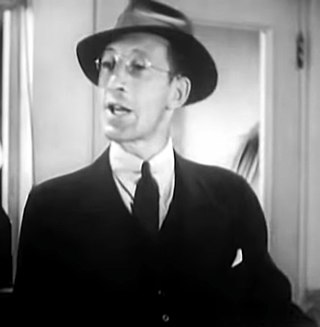
Charles Lane was an American character actor and centenarian whose career spanned 76 years.
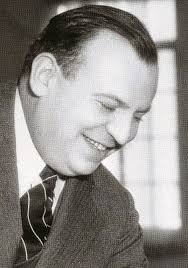
Alexander Dubin was an American lyricist. He is best known for his collaborations with the composer Harry Warren.
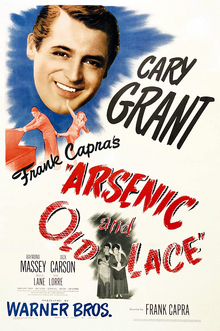
Arsenic and Old Lace is a 1944 American screwball black comedy crime film directed by Frank Capra and starring Cary Grant. The screenplay by Julius J. Epstein and Philip G. Epstein is based on Joseph Kesselring's 1941 play of the same name. The contract with the play's producers stipulated that the film would not be released until the Broadway run ended. The original planned release date was September 30, 1942. The play was hugely successful, running for three and a half years, so the film was not released until 1944.
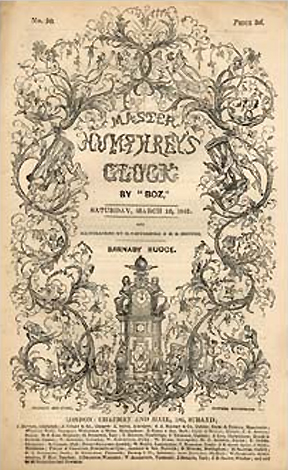
Barnaby Rudge: A Tale of the Riots of Eighty is a historical novel by English novelist Charles Dickens. Barnaby Rudge was one of two novels that Dickens published in his short-lived (1840–1841) weekly serial Master Humphrey's Clock. Barnaby Rudge is largely set during the Gordon Riots of 1780.

Joe Dirt is a 2001 American adventure comedy film, directed by Dennie Gordon, starring David Spade, Dennis Miller, Christopher Walken, Adam Beach, Brian Thompson, Brittany Daniel, Jaime Pressly, Erik Per Sullivan, and Kid Rock. The film was written by Spade and Fred Wolf, and produced by Robert Simonds. The plot revolves around a poor young man, Joe Dirt, who at first seems to be a loser. As he travels in search of his parents, his finer qualities are increasingly revealed. He ends up with a new family of close friends, people he has helped and who respect him. While critical reception was mostly negative, the film was a modest financial success, eventually becoming a cult favorite. A sequel, Joe Dirt 2: Beautiful Loser, premiered on Crackle on July 16, 2015.

Moses Gunn was an American actor of stage and screen. An Obie Award-winning stage player, he is an alumnus of the Negro Ensemble Company. His 1962 off-Broadway debut was in Jean Genet's The Blacks, and his Broadway debut was in A Hand is on the Gate, an evening of African-American poetry. He was nominated for the 1976 Tony Award for Best Actor in a Play for his performance in The Poison Tree, and he also played Othello on Broadway in 1970. For his screen performances, Gunn is best known for his roles as Clotho in WUSA (1970), Bumpy Jonas in Shaft (1971) and Joe Kagan on Little House on the Prairie (1977–1981).

Joseph Mansfield Santley was an American actor, singer, dancer, writer, director, and producer of musical theatrical plays motion pictures and television shows. He adopted the stage name of his stepfather, actor Eugene Santley.
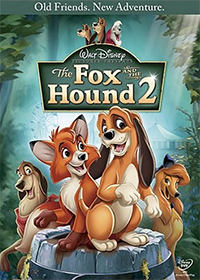
The Fox and the Hound 2 is a 2006 American animated direct-to-video buddy adventure film produced by Walt Disney Pictures and Disneytoon Studios, and an intermediate follow-up to the 1981 Walt Disney Animation Studios film The Fox and the Hound. The film takes place during the youth of Tod and Copper, before the events of the later half of the first film. The plot of The Fox and the Hound 2 involves Copper being tempted to join a band of singing stray dogs called "The Singin' Strays", thus threatening his friendship with Tod. The film was directed by Jim Kammerud and features the voices of Reba McEntire and Patrick Swayze. The film had an official soundtrack album released on November 21, 2006. The film was released on December 12, 2006 and received generally negative reviews, with critics calling it a pale imitation of its predecessor.
Joseph Aloysius Burke was an American composer and pianist. His successful songs, written with various lyricists, included "Down Honolulu Way" (1916), "Oh How I Miss You Tonight" (1924), "Tiptoe Through the Tulips" (1929), "Moon Over Miami" (1935), "Getting Some Fun Out of Life" (1937) and "Rambling Rose" (1948) and "Painting The Clouds With Sunshine" (1929)

"Old Black Joe" is a parlor song by Stephen Foster (1826–1864). It was published by Firth, Pond & Co. of New York in 1860. Ken Emerson, author of the book Doo-Dah! (1998), indicates that Foster's fictional Joe was inspired by a servant in the home of Foster's father-in-law, Dr. McDowell of Pittsburgh. The song is not written in dialect.
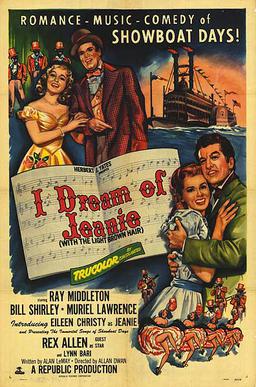
I Dream of Jeanie is a 1952 American historical musical film based on the songs and life of Stephen Foster, who wrote the 1854 song "Jeanie with the Light Brown Hair" from which the title is taken. The film was directed by Allan Dwan for Republic Pictures and was shot in Trucolor.

Joseph Brooks, was an American songwriter, composer and filmmaker. He was a successful author of commercial jingles during the 1960’s, before pivoting to a filmmaking career. His 1977 romantic drama You Light Up My Life, which he wrote, directed, produced, and scored; spawned the hit song of the same name, earning Brooks an Academy Award, Golden Globe Award, and a Grammy Award.

Swanee River is a 1939 American biographical musical drama film directed by Sidney Lanfield and starring Don Ameche, Andrea Leeds, Al Jolson, and Felix Bressart. It is a biopic about Stephen Foster, a songwriter from Pittsburgh who falls in love with the South, marries a Southern girl, then is accused of sympathizing when the Civil War breaks out. Typical of 20th Century-Fox biographical films of the time, the film was more fictional than it was factual.

The Lawless is a 1950 American film noir directed by Joseph Losey and featuring Macdonald Carey, Gail Russell and Johnny Sands.
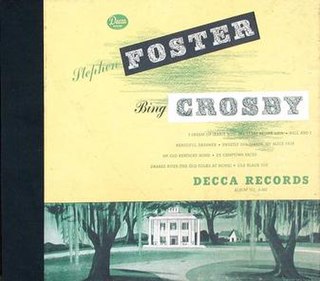
Stephen Foster is a compilation album of phonograph records by Bing Crosby of songs by Stephen Foster released in 1946.



















